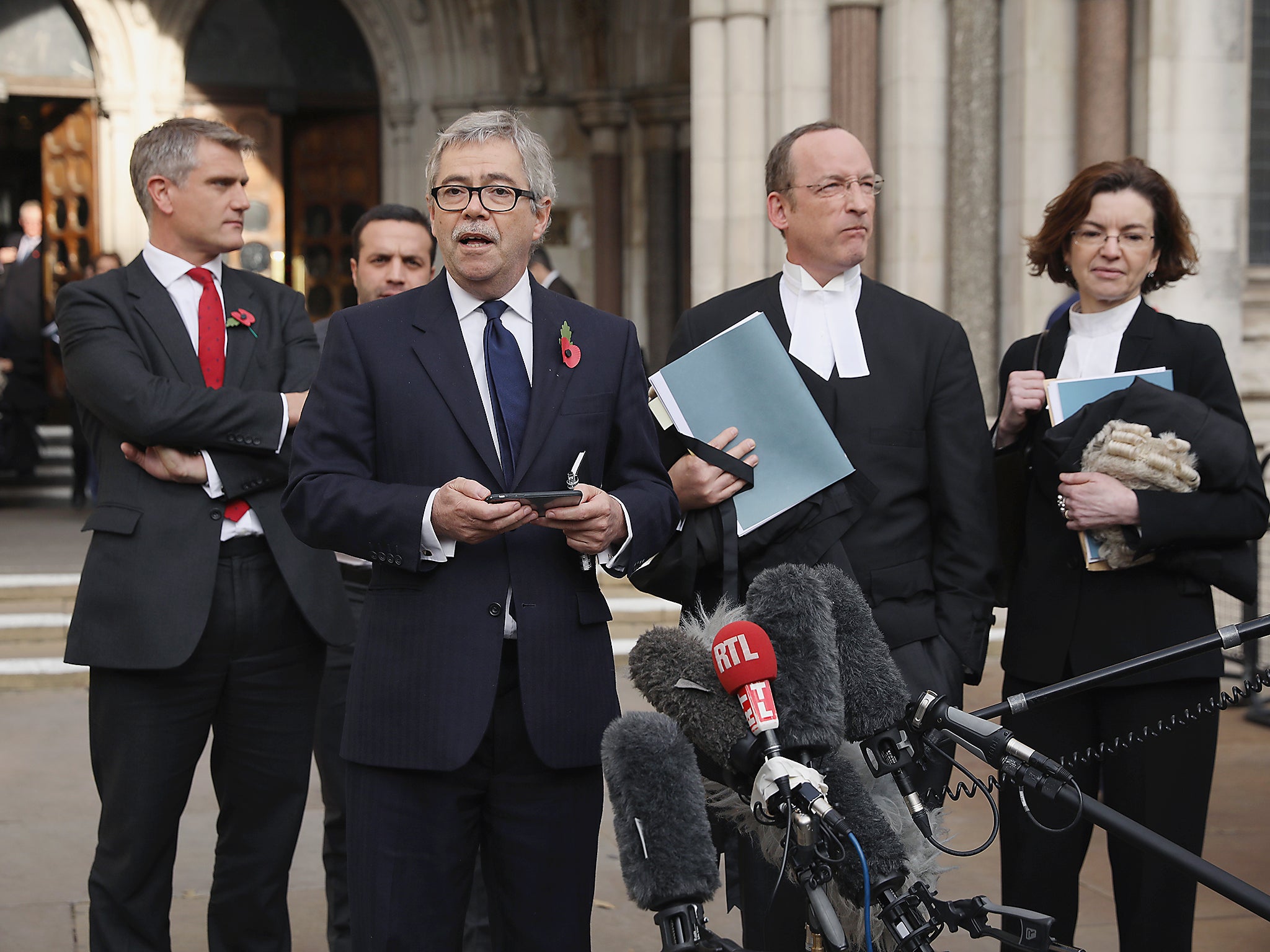The High Court ruling on Brexit proves we never should have treated the vote with a respect it didn’t deserve
According to the British Elections Study, about 7 per cent of the Leave vote would now change its mind. As the Brexit minister David Davis says: ‘A democracy that cannot change its mind is not a democracy’


Judges don’t know international treaties. That’s up to governments and politicians. David Cameron could have made the referendum in which only 37 per cent of the electorate voted to quit Europe mandatory and binding. He did not, and now judges have said the ball is back in the politicians’ court.
There was never much chance that the High Court judges, including the Lord Chief Justice, would seek to overthrow parliamentary sovereignty, which has been supreme since the Civil War and the Bill of Rights in the seventeenth century.
The plain fact is that the referendum divided the nation. Scotland and London voted for Europe. The North East, where there are just 19,000 East Europeans living and working, voted against Europe. Young people voted for a future in Europe. The old said No.
Everyone knows that the referendum was won on the basis of an Everest of lies. The economic news is dire. The 17 per cent devalutation of the pound reduces the net worth of Britain. The threat by the 1,000 Japanese firms that they may move to mainland Europe if they lose full, unfettered access to the single market has not gone away, despite the bribe Theresa May appears to have offered Nissan.
75,000 City workers will have to relocate to Europe to keep passporting and other rights that allow them to make money.
According to the British Elections Study, about 7 per cent of the Leave vote would now change its mind. May’s aggressive tone at her party conference – which presented the divided vote as a united nation shaking its fist at Europe as in the summer of 1940 – was ill-judged. She needs to reach out to the 48 per cent who said no to amputating the UK.
In other countries, referendums come and go. The Swiss government is considering a second referendum to overturn one in February 2014 where people voted to stop Europeans coming to work on Swiss building sites or mountain restaurants. A Ukip-style party won the first anti-EU referendum, but now Swiss MPs are so worried that losing access to the single market that they would like a revote.
Here in Britain, we have treated the referendum with a sacred reverence it does not deserve. As the Brexit minister David Davis says: “A democracy that cannot change its mind is not a democracy.” The decision by the judges does not change the mind of the nation, but it does mean MPs now have to accept their responsibilities.
In theory, there is a majority of Remainers among Tory, Labour, SNP and Lib Dem MPs. It is hard to see how the Government can keep stonewalling in its refusal to discuss fully and openly with MPs and through them with the public what its plans are.
May can probably count on her MPs being loyal, but there is now a major challenge for the divided and unhappy Labour Party to unite around a convincing policy. Some Labour MPs – unkindly dubbed “Red Ukip” – are backing work permits and quotas, the kind of “managed migration” that was a standard demand in every Ukip manifesto.
The rest of Europe has made clear that if Britain does start discriminating against EU citizens, as Ukip demands, then there is no possibility of full unfettered access to the single market. So can Labour find unity and leadership – and how will its MPs vote?
The Article 50 talks are not a new Treaty of Versailles or Congress of Vienna which drew up new rules for Europe in 1815 or 1920. They will be tediously technical about moving EU agencies out of London, who pays the pensions of Brits employed by the EU, and how many of the 45,000 bottles from the EU cellars are handed over for Whitehall’s consumption.
The big questions about trade or access to the single market can only begin once the Article 50 negotiations are over. So many more years of uncertainty about the future shape and status of the UK economy lie ahead.
At some stage, Parliament would have to be involved. All the judges have said is that Parliament is supreme and should have its say.
Denis MacShane is the former Minister of Europe and author of Brexit: How Britain left Europe (IB Tauris)


Join our commenting forum
Join thought-provoking conversations, follow other Independent readers and see their replies